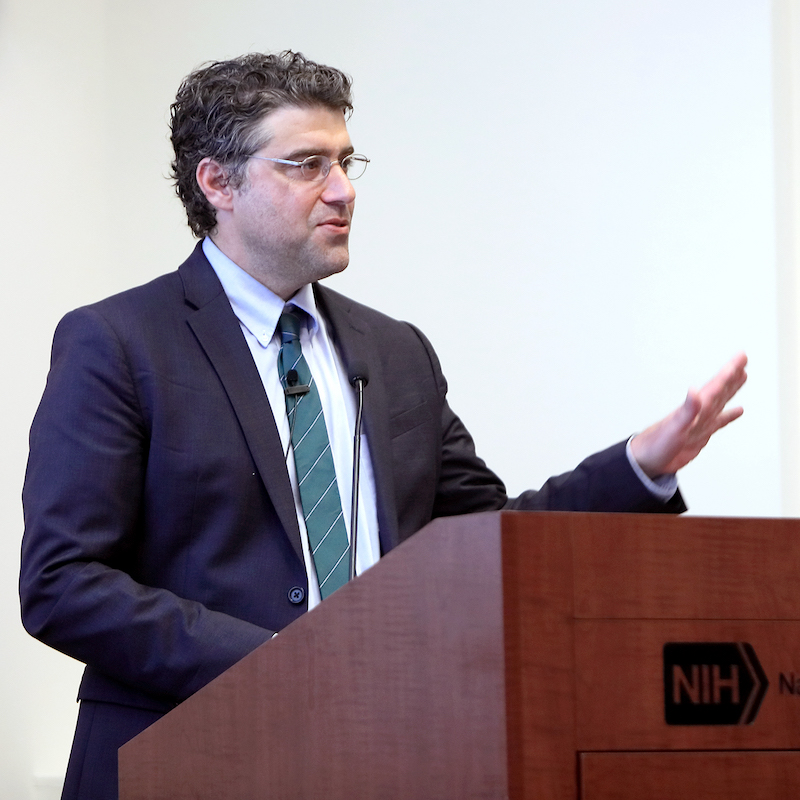Bratman Describes Science of Nature’s Effects on Psychological Health
November 26, 2018

Contact with nature—whether outdoors or indoors (e.g., from plants or window views)—is an emerging field of research showing potential to help address some important public-health problems, said Gregory Bratman, Ph.D., in a recent lecture at NIH.
His talk, “Nature Contact and Human Health: A Multimethod Approach,” was part of NCCIH’s Integrative Medicine Research Lecture Series and reflects the Center’s research interest in emotional well-being as an aspect of health promotion and disease prevention. The archived lecture is now available to view online.
Dr. Bratman is an assistant professor and the Doug Walker Endowed Professor at the School of Environmental and Forest Sciences, University of Washington.
The state of the evidence on nature experience (also called nature contact or nature exposure) shows promise as a therapeutic or preventive approach for a range of psychological and physical health challenges, he noted. Those benefits are in three interrelated domains—mental health, physical health, and general subjective well-being—with the amount and strength of evidence varying by topic. With several colleagues, he has developed and published a proposed research agenda for the field of nature contact and human health.
Dr. Bratman has introduced rumination as a possible causal mechanism for some nature experience benefits. In rumination, people repetitively think about negative aspects of themselves; this is associated with negative mood and a higher risk of depression and other psychological illnesses for some people. Some of his exploratory research has found decreases in self-reported rumination after nature walks.
“We can say with some degree of certainty that in many cases nature experience benefits mood and cognitive function for urbanites and likely emotion regulation as well, although that’s less studied,” he said. “This field is new, and there’s a lot of work to be done. [In applying the knowledge we gain], we can recognize our natural systems as vital assets, account for the roles they play in supporting human psychological well-being, and routinely incorporate these values in the decision-making process as we consider how to bring people to nature, and nature to people.”

Comments
Comments are now closed for this post.